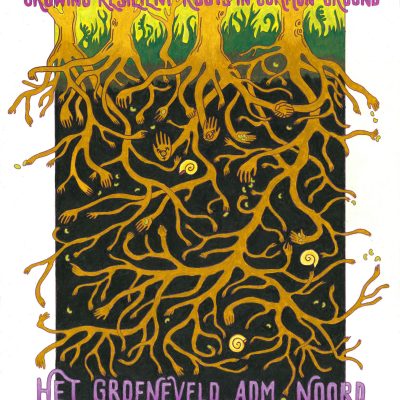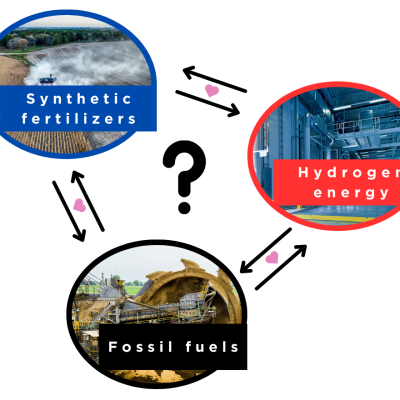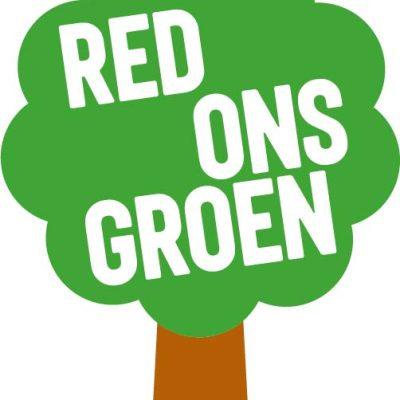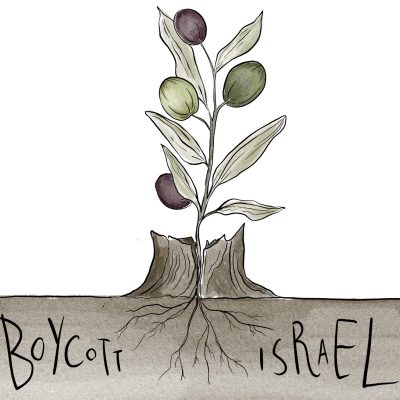 Beginning of July 2016 a series of actions were carried out by TTIP Game Over campaigners in Brussels. ‘TTIP Game Over’ posters were put up all over the city, meetings were disrupted and a Coca Cola billboard hijacked [1].
Beginning of July 2016 a series of actions were carried out by TTIP Game Over campaigners in Brussels. ‘TTIP Game Over’ posters were put up all over the city, meetings were disrupted and a Coca Cola billboard hijacked [1].
These actions follow last month´s protests which took place in several major European cities, including Amsterdam and Berlin, against the Trans-atlantic Trade and Investment Partnership (TTIP) between the EU and the United States, and the EU-Canada Comprehensive Economic and Trade Agreement (CETA). Substantial opposition to both treaties has recently proliferated in Europe, despite the secretive nature of the negotiations.
Popular renunciation of the treaties has, however, failed to stop the EU Commission and its American counterparts from continuing to push forward with the agreements – hence the direct action now being taken in Brussels. The negotiators’ insistence on signing both TTIP and CETA demonstrates not only a disregard for the opinion of their respective populations – one poll, published by Bertelsmann Stiftung in April, showed support for the TTIP at just 15% in the US and 17% in Germany [2] – but also a willingness to undermine the tentative promises made during the Paris climate talks: COP21.
In Europe, the TTIP could open the door to a wealth of climate abusing practices and high-emission products that are currently curtailed and prohibited by rules and regulations (as will be shown below). Even mainstream voices are cautioning against the deal. Respected liberal economist and would-be reformer, Joseph Stiglitz, has claimed the TTIP would, “cement in place a system that treats the environment as distinct from—and subordinate to—international trade and investment” [3].
Stiglitz’ conclusion appears to hold true when the foreseen impact of the TTIP on the European food system is considered. From farm to fork, the carbon footprint of food will only increase under the regulatory system outlined in the TTIP. Given that food and agriculture (according to COP21 estimates) accounts for at least 24% of greenhouse gas (GHG) emissions – 65% of which are attributed to livestock – any assessment of the likely environmental ramifications of the TTIP must take these sectors into account [4].
The Big Winner: Industrial Agriculture
In April of this year, Mute Schimpf, food campaigner at Friends of the Earth Europe, claimed, “the main winners from the TTIP deal will be corporate food giants and US factory farms” [5]. This may well be true as the deal demands what is being called ‘regulatory coherence’ between the two economic blocks. This means that regulations must either be made to match or similar products, produced under different standards, must be treated as equivalent – as is already the case with organic food produce under the 2012 US-EU Organic Equivalency Arrangement.
US factory farming is less regulated than in the EU. For example, US livestock farmers are allowed to give their animals growth hormones and antibiotics to increase their size and, in the case of antibiotics, to mitigate health problems induced by poor living conditions associated with intensive livestock production.
One such growth hormone is ractopamine, which has been banned in the European Union because the European Commission believes it could be dangerous, although its effect on human health is not yet fully understood [6]. Equally, the use of antibiotics as growth promoters has been banned in the EU since 2006, in recognition of the significant health threat posed by the emergence of antibiotic resistant strains of bacteria caused by the overuse of antibiotics [7]. According to the Institute for Agriculture and Trade Policy, the US meat lobby has been encouraging the US trade department to use the TTIP to make it possible to lift the ban on livestock growth promoters such as ractopamine and antibiotics [8].
As a consequence of the low food safety standards allowed in the US, meat can be produced more cheaply than in the EU. If the US meat lobby gets its way, small and medium sized farmers in Europe will be unable to compete with their American competitors and the EU will be unable to offer them any protection.
If this situation occurs, it is likely to result in the intensification of meat production in Europe as farms are consolidated into larger, industrial units in order to survive the competitive pressures. Intensifying production means using more inputs (feed, fertilisers etc.), which is good news for corporations who specialise in selling agro-inputs, but a disaster for the climate.
The increased use of inputs such as animal feed will have broad consequences for the environment. Not only does producing more animal feed entail the use of greater volumes of synthetic fertilisers, pesticides and herbicides, demand for feed is a key driver in global deforestation, which accounts for as much as 18% of all anthropogenic GHG emissions according to some sources [9]. Intensifying production will also necessitate the rearing of more livestock, which will result in more emissions, particularly from cattle, in the form of methane – a highly toxic GHG. The potential economic gains for big agribusiness, through the intensification of production, gives one possible explanation as to why agricultural lobby groups have been the most active lobby sector during TTIP negotiations [10].
Furthermore, under the TTIP, corporate profits will be protected from any attempt by governments to introduce legislation that would force businesses to cut emissions. Legislation of this kind could be considered an illegal “technical” trade barrier under the TTIP. It is likely that ‘buy local’ initiatives, which could be used to support small-scale, climate friendly, local farming, would also fall under the banner of trade barriers, as would ‘green’ purchasing programmes that require public bodies to seek out the greenest, rather than the cheapest, products and services [11].
The Infamous Investor State Dispute Settlement System
Failure to prevent such barriers from emerging would leave governments open to litigation under the investor state dispute settlement (ISDS) system, included in both the TTIP and CETA. The ISDS is arguably the most draconian and contentious feature of the TTIP and, if included, will have dire consequences for the environment and for the ability of people to set the terms by which their food system is organised.
Preventing GHG emissions often requires the introduction of regulations in order to prevent corporations from treating the climate like a trash can for their toxic waste and fumes. More often than not, these types of regulations hamper corporate profits. The ISDS would create a way for corporations to avoid regulation induced losses by bullying governments into allowing them free reign to pollute the world.
This is because the ISDS creates a perverse incentive for governments to avoid introducing regulations aimed at reducing emissions due to the fear that corporations would claim compensation through the private investor-state courts. If a corporation feels that a government decision has introduced a technical barrier to trade or led to unfair competition, the corporation can sue the government through the ISDS system for profits lost.
The threat of ISDS is particularly pertinent in the case of poorer states and local or regional municipalities who have smaller budgets and are generally strapped for cash. Their situation stands in stark contrast to that of most international corporations, which have deep pockets and are teeming with legal staff. In this situation, the very threat of a lawsuit might be enough to deter states from taking action, never mind the thought of incurring potentially huge costs if they lose.
Alongside many states, small and medium sized businesses will also fail to benefit from the ISDS system, as they are likely to find the costs of pursuing a case too expensive [12]. It is clear that the only real beneficiary of the inclusion of the ISDS in the TTIP is big business, while governments, citizens and the environment are bound to lose out.
If, for example, a government wanted to reduce the carbon footprint of its citizens’ food consumption by introducing a ban on meat that had been fed soymeal from deforested areas of the Amazon, agri-business conglomerates would be able to sue the state for lost profits by arguing that the ban amounted to unfair competition. The corporations might not win, but under the rules of the TTIP they would be more than likely to do so. In one real-life case, energy company Vattenfall sued the German government for nearly $2 billion after permits for a coal power plant were delayed on environmental grounds. The case was eventually settled by the permits being granted regardless of environmental concerns [13].
Implications for the Global South
As significant as TTIP is to Europe, the deal carries implications that go beyond EU and US borders. In particular, the US has stated that it views the TTIP as an opportunity to “shape the global rules for trade and investment” and “to be standard setters rather than standard takers” [14]. This means using the TTIP “to set global rules that privilege investors over sovereign decision-making favouring the public interest” [15].
From this perspective, the TTIP is about imposing conformity and obedience in the international state system, forcing developing nations to accept the terms of trade imposed on them by the affluent Western nations. The TTIP will be used as an example to persuade and cajole developing countries to further hand over their sovereignty to international corporations.
Should this happen, the ability of people in the Global South to exercise control over their government, community and economy will be severely compromised. Farmers will continue to be forced off the land to be replaced by climate polluting industrial agriculture. Alternatives will be gradually snuffed out and constrained in favour of a one-size-fits-all model designed by corporations, for corporations.
It is also probable that the integration of the economies of the EU and US under the TTIP would have more immediate effects on developing countries. As already described, the intensification of meat production in the EU, in response to competitive pressure from the US, will increase the demand for livestock feed. This would likely result in further deforestation and agricultural industrialisation in the Global South in order to meet the growing demand.
The Process and how to Stop it
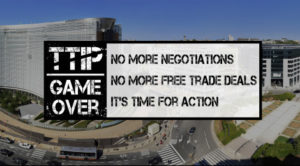 At present the TTIP is still in the negotiation phase, while CETA is now ready for ratification. TTIP negotiations continue to be held behind closed doors, offering little transparency. Once the agreement has been finalised it will be presented to EU member state governments and the European Parliament for ratification, a process the EU calls a “double democratic guarantee” [16]. If the EU Commission is not persuaded to drop out of negotiations, then the final decision will come down to individual parliamentarians and ministers at the national and European level; it is these people who will have to be persuaded to vote against the TTIP (and CETA).
At present the TTIP is still in the negotiation phase, while CETA is now ready for ratification. TTIP negotiations continue to be held behind closed doors, offering little transparency. Once the agreement has been finalised it will be presented to EU member state governments and the European Parliament for ratification, a process the EU calls a “double democratic guarantee” [16]. If the EU Commission is not persuaded to drop out of negotiations, then the final decision will come down to individual parliamentarians and ministers at the national and European level; it is these people who will have to be persuaded to vote against the TTIP (and CETA).
Everyone can play a role in stopping the TTIP. Firstly, by engaging with EU parliamentarians, and secondly, by supporting and participating in campaigns such as TTIP Game Over. Action training days are planned for Saturday the 10th and 11th of September in Brussels – you can register here – and there will be a national demonstration against TTIP and CETA in the European quarter of Brussels on the 20th September. In relation to the role of agri-business in influencing the terms of the treaty through lobbying, targeting their representatives in Brussels would send a clear message. A full list of corporate lobbyists involved with the TTIP can be found here.
The End of Toxic Trade Deals
At a time when society should be focused on cutting back emissions and reorganising along ecological lines the agreements on offer calls for more of the same, and worse. While Europe is hardly a climate-friendly continent, the TTIP and CETA will further narrow the space available for viable alternatives to emerge, forcing producers to follow the logic of “get big, or get out”. If climate disaster is to be averted and if states are to live up to the promises they made in Paris, the TTIP must be abandoned now. It is time to end these toxic trade deals!
TAKE ACTION:
https://ttipgameover.net/blog/en/ – Find out how you can join the TTIP Game Over actions in Brussels and carry out your own.
https://ttip-referendum.nl/ – Live in the Netherlands? Support the campaign to have TTIP decided by a referendum.
https://stop-ttip.org/ – Contact Members of the European Parliament to ask them about CETA and register your concerns about the deal.
http://www.e-activist.com/ea-action/action?ea.client.id=1819&ea.campaign.id=49561 – If you are a citizen of the UK you can sign the petition demanding the Prime Minister put CETA to a vote in parliament.
https://www.facebook.com/stopttiptafta/ – Follow updates and spread information on social media.
Sources:
[1] – More detailed accounts of the actions taken against the TTIP in Brussels can be found here: https://1-m.cc/pages/tttipgameover
[4] – http://newsroom.unfccc.int/lpaa/agriculture/press-release-lpaa-focus-agriculture-at-cop21/
[5] – https://www.foeeurope.org/TTIP-trade-deal-poses-serious-threat-EU-farming
[6] – https://www.foeeurope.org/served-by-ttip
[7] – http://europa.eu/rapid/press-release_IP-05-1687_en.htm
[8] – http://www.iatp.org/documents/10-reasons-ttip-is-bad-for-good-food-and-farming
[9] – https://www.grain.org/article/entries/5390-food-sovereignty-can-stop-climate-change-and-feed-us-all
[10] – http://corporateeurope.org/international-trade/2014/07/who-lobbies-most-ttip
[11] – https://www.grain.org/article/entries/5317-trade-deals-boosting-climate-change-the-food-factor
[13] – http://www.isdscorporateattacks.org/#!climate/c1u51
[14] – http://useu.usmission.gov/remarks102315.html
[15] – https://www.tni.org/files/download/ttip_world_beware.pdf
[16] – http://ec.europa.eu/trade/policy/in-focus/ttip/about-ttip/process/#_main-stages

